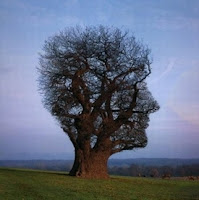Absolute Proof God Exists -- Part Two

Second Non-Biblical Proof of God -- "Conscience"
Before we begin, let's define the word "conscience" and take a brief look at its root words:
Conscience: The inner sense of what is right or wrong in one's conduct or motives, impelling one toward right action (from the roots con meaning "together" or "with" and scientia meaning "knowledge").
Supposing that humans are born with an innate sense of right and wrong, we must further assume that , at birth, we have enough information from which to come to "knowledgeable" conclusions. When my daughter was an infant, it became abundantly clear that she was a blank slate and was only ingrained with the most primitive of functions: the ability to drink, breathe, expel waste, sleep and explore her newly-formed vocal chords when she perceived duress or desire. Those are the basics that all human infants are born with; the basic will to survive.
All of my daughter's "knowledge" since her birth has come from her surroundings: interaction with her parents, brother, grandparents, sight, taste, sound, touch, etc. How, then, can fundamentalist evangelicals like Todd Friel claim the knowledge from which you make moral or ethical assessments to be an inborn trait? Nothing happens in a vacuum... certainly not the psychological growth and development of a child! Every factor imposed on a human (man, woman or child) will have some sort of affect on their perceptions and interaction with the world around them.
The human ability to discern between perceived "good" and "bad" decisions start at childbirth and grow through adolescence and into adulthood. When parents raise their children, the majority feel it their obligation to instruct them in a way in which they will grow to be productive, with the ability to make social contributions. It eludes me how theists can extrapolate divine providence from something that is so clearly socially driven.
More than half a century before the gospels of Christ were written, the ethic of reciprocity was first being alliterated. Today, we know this code of ethical conduct as "The Golden Rule", the foundation of humanistic (the only viable) ethical principles.













